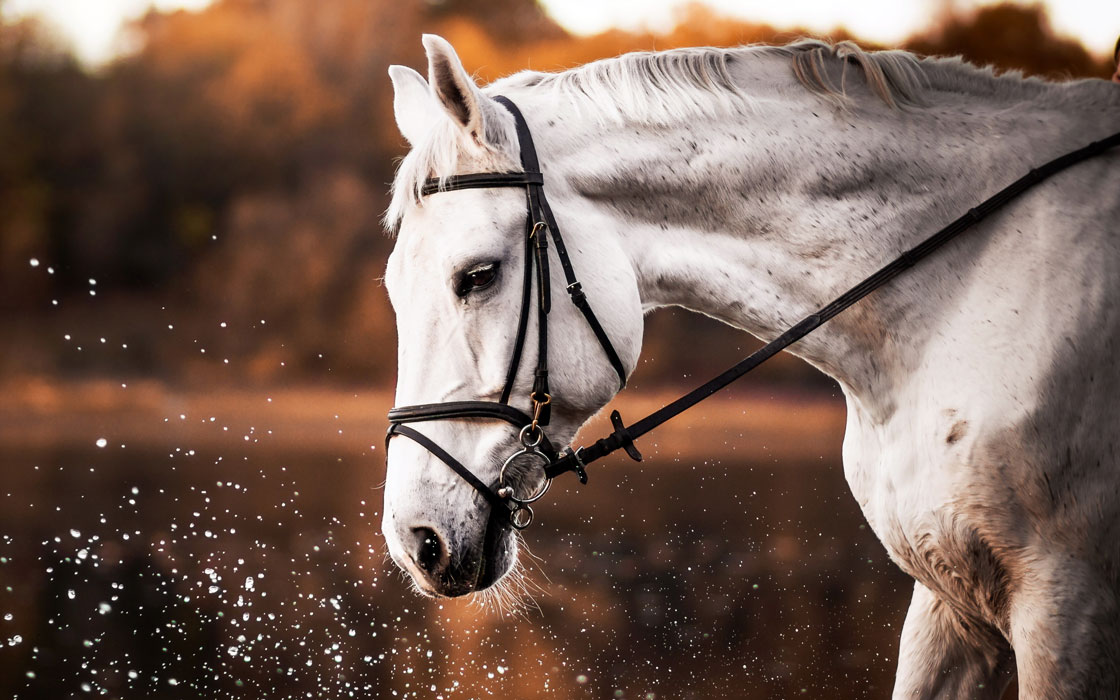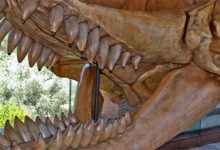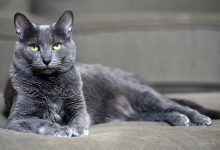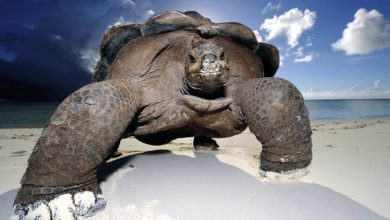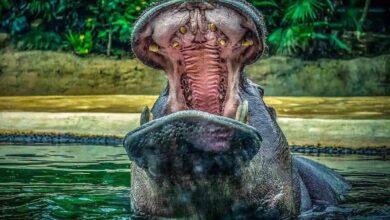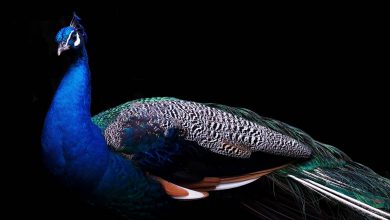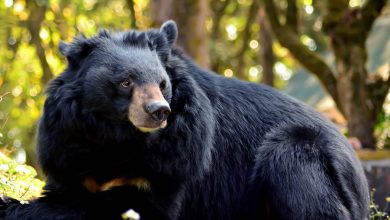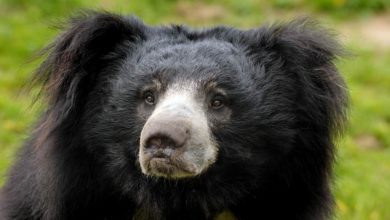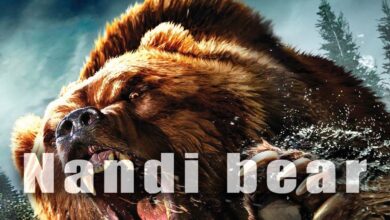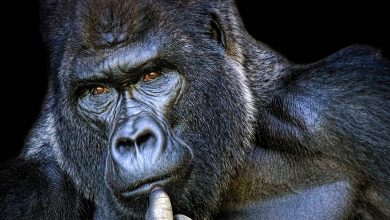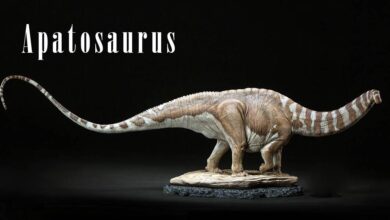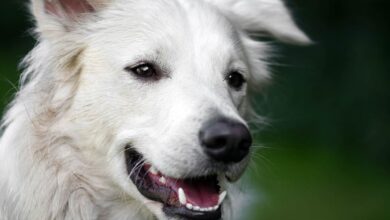Feeding and keeping horses
Caring for horses is all about carefully ensuring the comfort and well-being of these intelligent and magnificent animals. Excellent care for these beautiful creatures is the foundation of joy and pride for both the horses and their involved owners. It creates a harmonious bond, where the horse’s physical and emotional needs are met. From providing a safe and stimulating environment to offering a balanced diet that fuels their strength and vitality, every aspect of horse care plays a pivotal role in its life. Moreover, it’s a testament to the timeless partnership between humans and horses, a bond that has shaped history, from ancient civilizations to modern equestrian sports. In return for our dedication, horses reward us with their loyalty, companionship, and often astonishing feats of athleticism. Additionally, many people in India love horse race bet at where beautiful horses show their grace and strength.
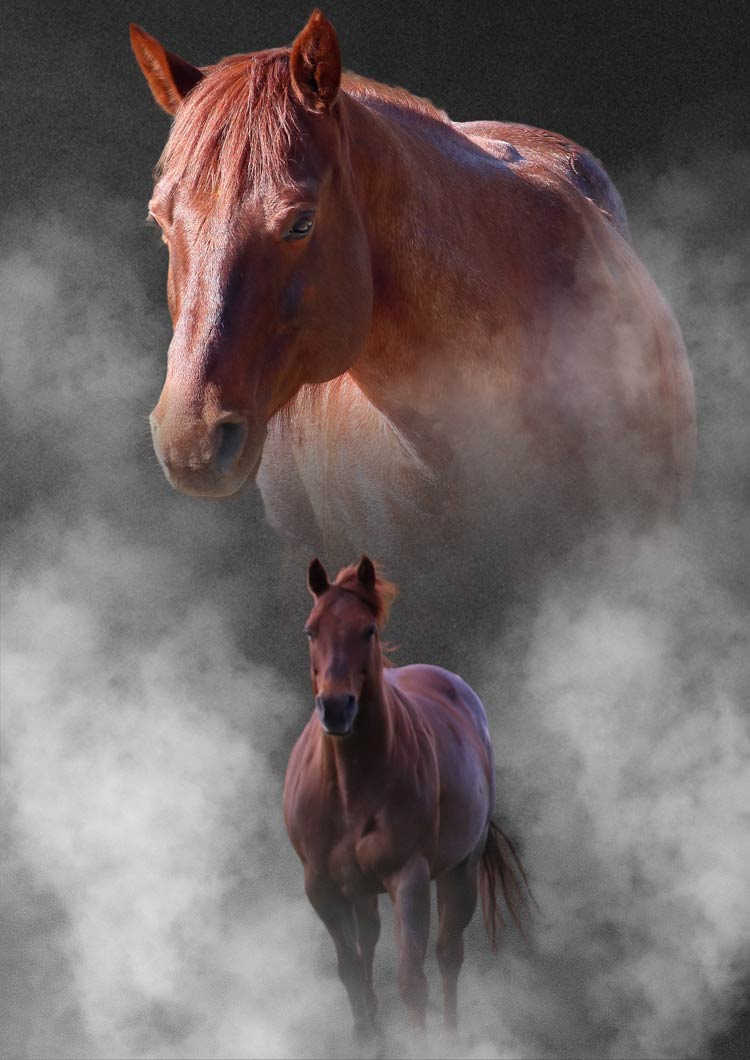
Important Rules
There are a variety of techniques and procedures used to keep horses in optimum condition. These include systematic mane cleaning, bathing, regular grazing in the open air and feeding with specially selected feed. In addition, a conscientious owner will arrange for regular veterinary checks and pay attention to other aspects of care.
The key rules are the following:
Housing and Space
Horses require adequate space to move around, graze, and exercise. A general guideline is to provide at least 1 acre (0.4 hectares) of pasture per horse.
Shelter from harsh weather conditions, such as a stable or a run-in shed, is essential.
Diet
Horses are herbivores and their primary diet consists of forage, such as grass and hay. Ensure access to good quality forage at all times.
Additionally, provide a balanced concentrate feed, which may include grains like oats, barley, and corn, as well as protein sources like soybean meal. The exact amounts should be tailored to the horse’s age, activity level, and overall health.
Fresh, clean water should be available at all times.
Nutritional Needs
Horses require a balanced diet that includes protein, carbohydrates, fats, vitamins, and minerals. The specific requirements may vary based on the horse’s age, breed, and activity level.
Veterinary Care
Regular check-ups with a veterinarian are crucial for vaccinations, dental care, and overall health assessments.
A farrier should also attend to the horse’s hooves on a regular schedule.
Exercise and Mental Stimulation
Regular exercise is important to maintain physical fitness and mental well-being. This can include riding, lunging, and turnout in a paddock or pasture.
Socialization:
Horses are social animals and generally thrive on companionship. They benefit from interaction with other horses. If possible, consider keeping them in a herd.
Grooming
Regular grooming helps maintain a horse’s coat, skin, and hoof health. This includes brushing, mane and tail care, and picking out hooves.
Environmental Considerations
Keep the living area clean and free of hazards. Remove manure regularly to prevent buildup and reduce the risk of parasites.
Disease Prevention:
Implement a vaccination and deworming schedule recommended by your veterinarian to protect against common equine diseases and parasites.
Emergency Preparedness
Have a plan in place for emergencies, including access to veterinary care, first aid supplies, and a safe evacuation plan if necessary.
Specialized Care
Some horses may have specific dietary or medical needs due to age, health conditions, or special activities like breeding or competition. Consult a veterinarian or equine nutritionist for tailored advice.
These guidelines, when carefully followed, ensure the well-being and longevity of horses and foster a deep bond between these magnificent animals and their dedicated caregivers. Proper care not only benefits the horses themselves, but also enhances the satisfaction and pride of their owners, creating a harmonious partnership that celebrates the beauty and grace of these intelligent creatures.
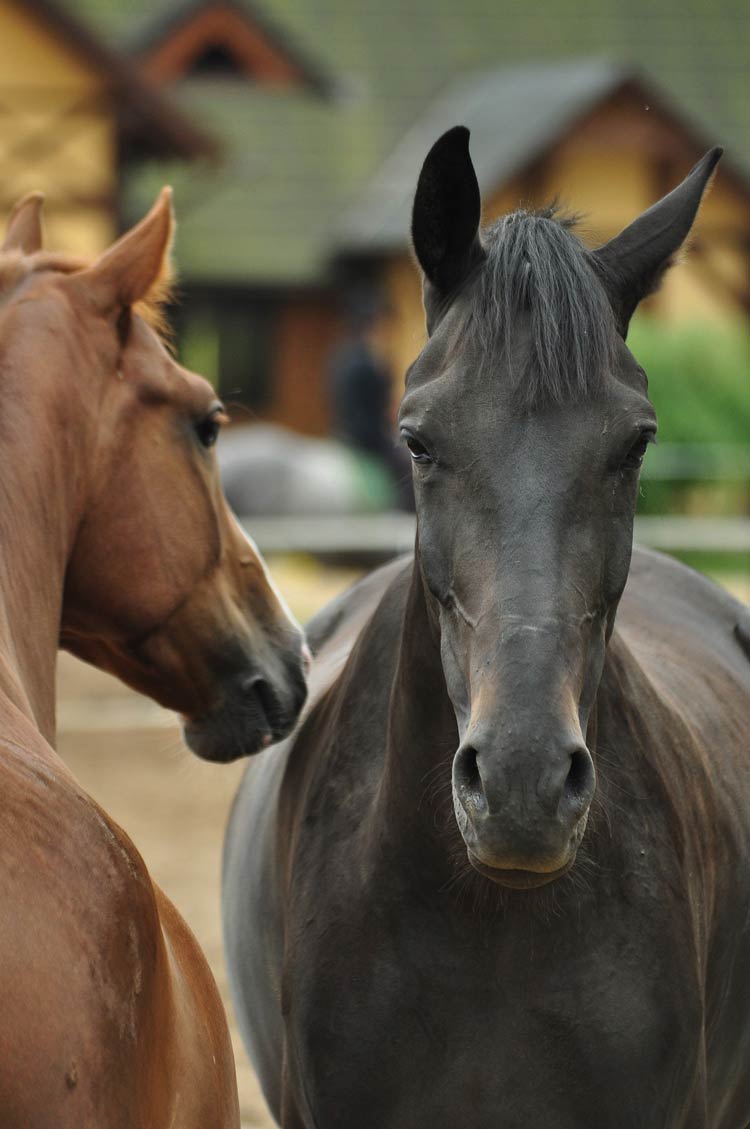
Horse nutrition: important aspects of care
It is very important to pay attention to the horse’s diet. Its composition should be an optimal combination of water, protein, fiber, carbohydrates, fats and essential minerals. It is also important to remember that during the colder months, horses need extra energy to maintain their body heat, so it is important to provide them with unlimited amounts of fiber-rich hay.
1. Forage Quality and Quantity
- Aspect: Provide high-quality forage such as grass and hay. This is the foundation of a horse’s diet.
- Care Consideration: Ensure access to fresh, clean forage at all times. The quantity should be based on the horse’s weight, age, activity level, and the quality of the forage.
2. Balanced Diet
- Aspect: A balanced diet includes proteins, carbohydrates, fats, vitamins, and minerals.
- Care Consideration: Consult with an equine nutritionist or veterinarian to determine the appropriate combination and amounts of concentrate feeds and supplements based on the horse’s specific needs.
3. Water Availability
- Aspect: Water is essential for digestion, temperature regulation, and overall health.
- Care Consideration: Ensure that horses have constant access to clean, fresh water. Monitor water intake, especially during hot weather or increased activity.
4. Protein Intake
- Aspect: Protein is crucial for muscle development, tissue repair, and overall health.
- Care Consideration: Provide protein from quality sources like legumes, forage, and balanced concentrates. Ensure the protein content meets the horse’s age, activity level, and growth stage.
5. Essential Fatty Acids
- Aspect: Fatty acids are important for energy, coat condition, and certain bodily functions.
- Care Consideration: Include sources of essential fatty acids like vegetable oils in the diet. Monitor the overall fat content to maintain a healthy balance.
6. Vitamins and Minerals
- Aspect: Essential for various physiological functions including bone health, immune function, and enzyme reactions.
- Care Consideration: Ensure that the horse’s diet provides adequate levels of vitamins and minerals. Depending on the forage quality and local soil conditions, supplementation may be necessary.
7. Avoid Overfeeding and Obesity
- Aspect: Overfeeding can lead to obesity, which can result in various health issues.
- Care Consideration: Monitor the horse’s body condition and adjust the diet accordingly. Provide regular exercise to maintain a healthy weight.
8. Dental Care
- Aspect: Proper dental health is crucial for effective chewing and digestion.
- Care Consideration: Schedule regular dental check-ups and floating (smoothing of sharp edges on teeth) as recommended by a veterinarian or equine dentist.
9. Tailored Diet for Life Stages
- Aspect: The nutritional needs of a horse change with age, such as for growing foals, mature adults, and senior horses.
- Care Consideration: Adjust the diet to meet the specific needs of the horse’s life stage. For example, provide additional nutrients for growth or modify the diet for senior horses with dental issues.
10. Monitor for Special Health Conditions
- Aspect: Some horses may have specific health conditions, such as insulin resistance or metabolic disorders, which require special dietary considerations.
- Care Consideration: Consult with a veterinarian or equine nutritionist for a specialized diet plan tailored to the horse’s condition.
Modern diets offer a rich variety of nutrients, including oats, barley, rye, corn, millet, flax seeds, peas, beans and soybeans. Flax seeds promote a healthy coat, leaving it soft and shiny, while oats provide essential nutrition. It is sometimes possible to supplement a horse’s diet with milk, eggs or cheese to ensure mineral balance by adding vitamins and mineral supplements.
Remember, individual horses may have unique needs, so regular monitoring and adjustments to their diet are essential for their overall health and well-being. Always seek advice from equine professionals for specific dietary recommendations.
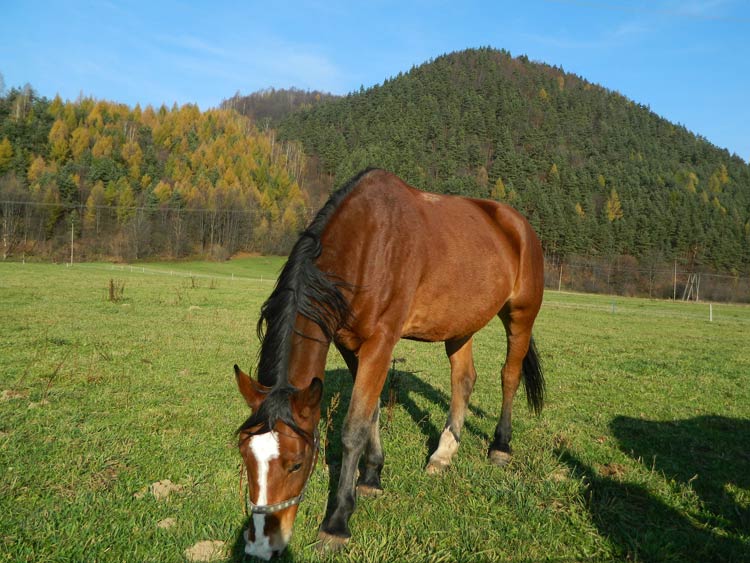
Diet examples
They typically consume 30 kilograms (66 lb) of feed per day, but prefer small portions. It is therefore best to feed horses three times a day on a strict schedule. Animals remember where and when they are fed and it is best to respect this habit. If you decide to change your horse’s diet, do so gradually to allow his digestive system to adjust.
In addition, it is also important to monitor water intake. On average, a horse consumes 20 to 50 liters of water per day, depending on the season, temperature and age of the animal. This amount of water is approximately 5% of its weight, so it is necessary to ensure that the horse has access to a sufficient amount of water.
1. Adult Recreational Horse (Maintenance Diet)
- Forage: High-quality grass hay or pasture access.
- Concentrates: Minimal to none, unless needed to maintain body condition.
- Supplements: Basic vitamin and mineral supplement if forage quality is poor.
- Water: Adequate clean water available at all times.
2. Growing Foal (6-12 months old)
- Forage: High-quality legume hay (alfalfa) and pasture access.
- Concentrates: Commercial foal growth feed according to manufacturer’s instructions.
- Supplements: None if the commercial feed is balanced.
- Water: Adequate clean water available at all times.
3. Performance Horse (Moderate to Heavy Work)
- Forage: Mix of high-quality grass and legume hay, with some pasture access.
- Concentrates: Balanced performance feed with added protein and energy sources. May include grains like oats and corn.
- Supplements: Electrolytes, joint supplements, and specific vitamins/minerals as recommended by a vet or nutritionist.
- Water: Adequate clean water available at all times.
4. Senior Horse (20+ years old)
- Forage: High-quality soft hay or soaked hay cubes for easier digestion, with limited pasture access.
- Concentrates: Senior horse feed with easily digestible fiber sources. May include beet pulp for additional fiber.
- Supplements: Joint supplements, vitamins (especially Vitamin E), and mineral supplements as recommended.
- Water: Adequate clean water available at all times.
5. Pregnant Mare (Last Trimester):
- Forage: High-quality legume hay (alfalfa) with limited pasture access.
- Concentrates: Mare and foal feed with added calcium and protein.
- Supplements: Calcium supplements if needed, and prenatal vitamins for mares if recommended by a vet.
- Water: Adequate clean water available at all times.
6. Easy Keeper (Tends to Gain Weight Easily)
- Forage: Low-calorie, high-fiber forage such as mature grass hay, with limited pasture access.
- Concentrates: Minimal to none. If needed, choose a low-calorie, high-fiber feed.
- Supplements: None unless recommended by a vet for specific health concerns.
- Water: Adequate clean water available at all times.
Remember, these are general guidelines and the actual diet should be based on factors like the horse’s age, weight, activity level, health status, and the quality of available forage. Consulting with an equine nutritionist or veterinarian is recommended for tailoring a specific feeding plan for each individual horse.
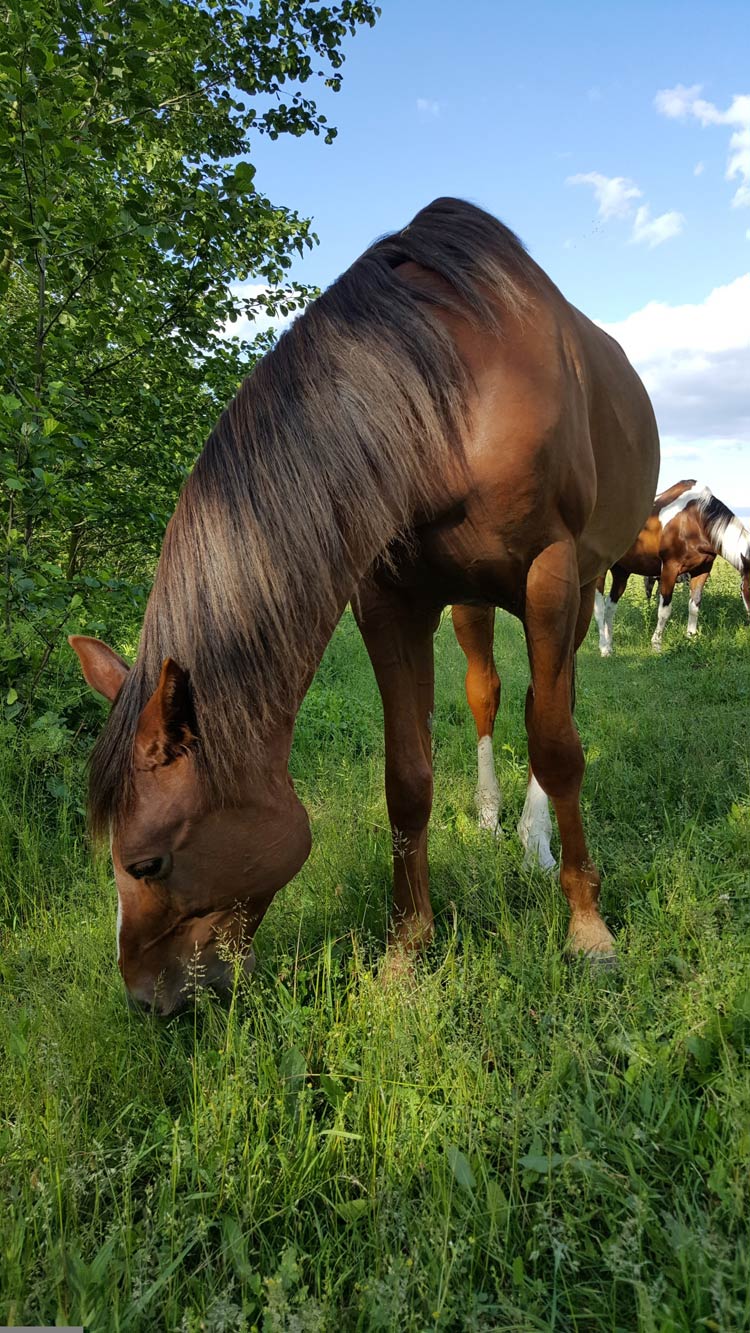
Recommended
- African lion
- Asian lion
- African elephant
- African forest elephant
- Asian elephant
- Moose
- Owls
- Parrots
- Giraffe
- Gorillas
- Zebroid
- Zebra
- Giant anteater
- Lizards
- Toucans
- Lemurs
- Secretarybird
- Ants
- Kakapo
- Horses

